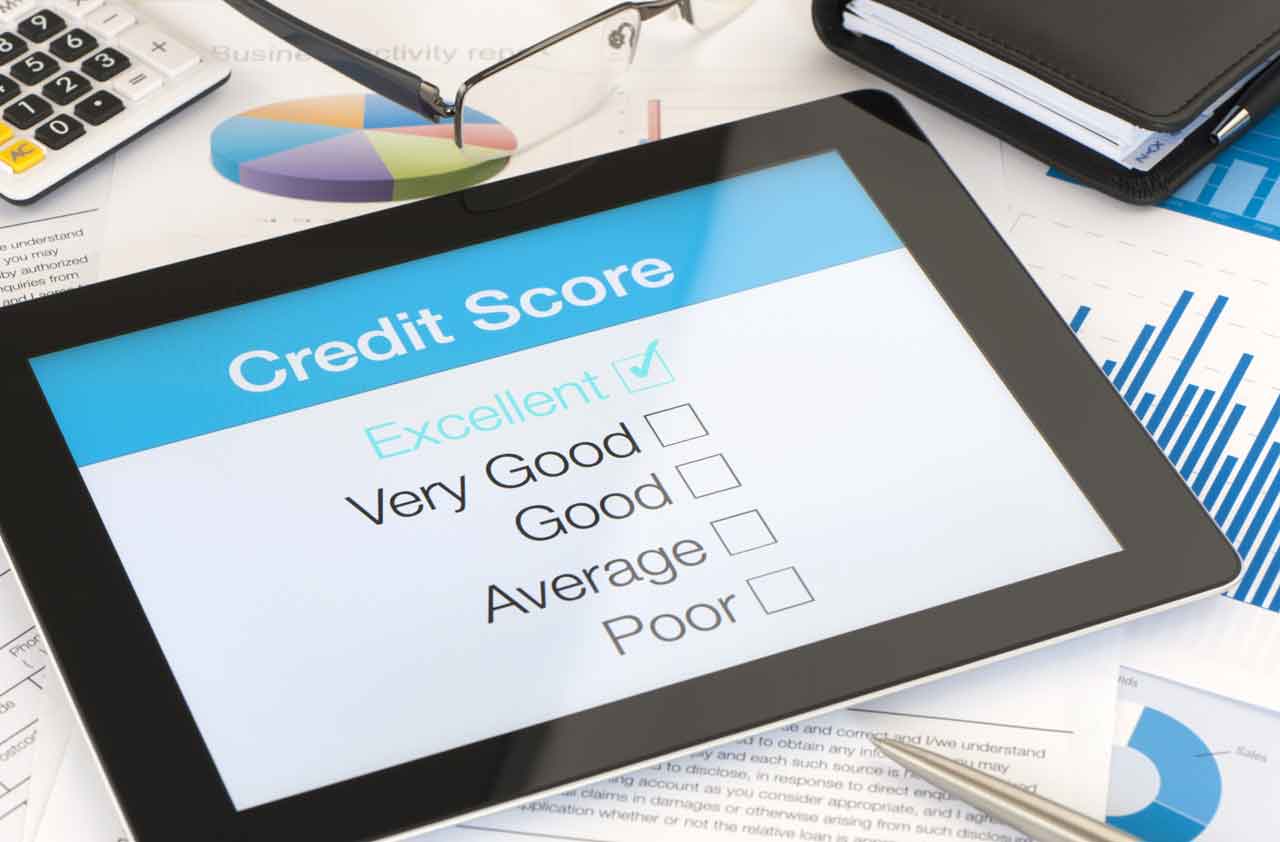Six Habits of People With Excellent Credit Scores
Improve your creditworthiness by adopting the strategies used by those with high credit scores.


Profit and prosper with the best of Kiplinger's advice on investing, taxes, retirement, personal finance and much more. Delivered daily. Enter your email in the box and click Sign Me Up.
You are now subscribed
Your newsletter sign-up was successful
Want to add more newsletters?

Delivered daily
Kiplinger Today
Profit and prosper with the best of Kiplinger's advice on investing, taxes, retirement, personal finance and much more delivered daily. Smart money moves start here.

Sent five days a week
Kiplinger A Step Ahead
Get practical help to make better financial decisions in your everyday life, from spending to savings on top deals.

Delivered daily
Kiplinger Closing Bell
Get today's biggest financial and investing headlines delivered to your inbox every day the U.S. stock market is open.

Sent twice a week
Kiplinger Adviser Intel
Financial pros across the country share best practices and fresh tactics to preserve and grow your wealth.

Delivered weekly
Kiplinger Tax Tips
Trim your federal and state tax bills with practical tax-planning and tax-cutting strategies.

Sent twice a week
Kiplinger Retirement Tips
Your twice-a-week guide to planning and enjoying a financially secure and richly rewarding retirement

Sent bimonthly.
Kiplinger Adviser Angle
Insights for advisers, wealth managers and other financial professionals.

Sent twice a week
Kiplinger Investing Weekly
Your twice-a-week roundup of promising stocks, funds, companies and industries you should consider, ones you should avoid, and why.

Sent weekly for six weeks
Kiplinger Invest for Retirement
Your step-by-step six-part series on how to invest for retirement, from devising a successful strategy to exactly which investments to choose.
Without even knowing it you might be doing things that are damaging your credit score, which affects your ability to get credit and the interest rate you pay when you do get credit. A 2014 survey by Credit.com found that consumers sometimes don’t understand which actions will and will not help them improve their credit scores.
To take the right steps to boost your score, you need to start by understanding the basics of credit scores. The FICO credit score is the most widely used score in lending decisions and ranges from 300 to 850. A FICO score of 750 to 850 is considered excellent, and those with a score in that range have access to the lowest rates and best loan terms, according to myFICO.com, the consumer division of FICO. A score of 700 to 749 is good, and those with a score in this range will likely be approved for loans but might pay a slightly higher interest rate. A score of 650 to 699 is considered fair, and those with a score in this range will pay higher rates and could even be declined for loans and credit, according to myFico.com.
The three credit bureaus – Equifax, Experian and TransUnion – also have created the VantageScore, which ranges from 501 to 990, and the VantageScore 3.0, which ranges from 300 to 850 (to mimic the FICO range). The VantageScore is growing in popularity among lenders but still isn’t as widely used as the FICO score. No matter the name, scores can vary by credit bureau depending on when the score was calculated and what specific method was used to make the calculation. Each credit bureau has its own formula.
From just $107.88 $24.99 for Kiplinger Personal Finance
Become a smarter, better informed investor. Subscribe from just $107.88 $24.99, plus get up to 4 Special Issues

Sign up for Kiplinger’s Free Newsletters
Profit and prosper with the best of expert advice on investing, taxes, retirement, personal finance and more - straight to your e-mail.
Profit and prosper with the best of expert advice - straight to your e-mail.
You can get a free VantageScore 3.0 and a credit score from Experian through Credit.com. Credit Karma provides a free VantageScore and a TransUnion credit score with its credit report card. And Quizzle offers a free VantageScore 3.0 from Equifax. Or you could pay $19.95 per FICO score from each of the three bureaus at myFICO.com.
Once you know your score, you can start taking the right steps to improve it. To do so, follow these six habits of people with excellent credit scores.
1. Pay on time. Payment history is the top factor in most credit scoring models, says Gerri Detweiler, director of consumer education at Credit.com. So payments that are 30 days or more late can quickly drag down your credit score. And one late payment is enough to hurt your score, she says. According to myFICO.com, 96% of consumers with a credit score of 800 pay credit accounts on time; 68% of those with a score of 650 have accounts past due.
Even if you can only afford to pay the minimum, always pay on time because that will have a bigger impact on your score than the amount you pay, Detweiler says. Set up automatic bill pay through your credit account or bank account so you don’t miss a payment.
2. Minimize use of available credit. Usually the second most important factor in your credit score is how much debt you have compared with the amount of available credit you have, Detweiler says. Those with a credit score of 800 use only 7% of their available credit, on average, according to myFiCO.com. But most consumers with a score of 650 have maxed out their available credit.
You can see a significant increase in your credit score shortly after you pay down highly utilized credit accounts, Detweiler says. If your credit cards are maxed out and you can’t pay them off quickly, she recommends consolidating your balances with a personal loan from a bank because the so-called credit utilization ratio (total credit balance divided by total credit limit) for those loans isn’t calculated in the same way and doesn’t weigh heavily on your score.
3. Maintain low or no balances. People with excellent credit almost always keep low balances on their credit cards, and often don’t pay interest because they pay their balances in full every month, says Jason Steele, a credit card expert for CompareCards.com. In other words, they only use cards for things they can afford to pay off with cash, he says. To become disciplined with credit and avoid racking up balances, Steele recommends logging into your credit account online after making a purchase to pay it off. If you’re already carrying a balance, see How to Pay Off Your Credit-Card Debt in a Year for steps to pay off what you owe.
4. Have a lengthy credit history. Those with a credit score of 800 have an average account history of 11 years (with oldest account opened 25 years ago) versus an average account history of seven years (with the oldest account opened 11 years ago) for those with a score of 650, according to myFICO.com. So opening several new accounts at once can shorten the average age of your credit history, Detweiler says. And closing old, inactive accounts also can hurt. This move can increase your credit utilization ratio since closing an account means you no longer have access to that available credit.
5. Only apply for credit when necessary. It’s important to have a healthy mix of lines of credit, including credit cards, auto loans, mortgages and even personal loans, Steele says. This shows that lenders are willing to trust you with their loans. And the more available credit you have, the lower your credit utilization ratio will be, he says.
But that doesn’t mean you should apply for every line of credit you’re offered. Multiple inquiries from lenders for your credit reports in a short period can trim your score, especially if you don't have many credit accounts or you have a short credit history. Be especially careful when car shopping because Detweiler has heard lots of complaints from consumers whose scores dropped when they had several dealers pulling their reports for financing options. Rather than let a dealer shop your credit, choose a lender you like beforehand and get pre-approved for a loan.
6. Choose credit cards carefully. People with excellent credit usually get the best credit card offers. But they’re smart about the cards they choose. For example, even though retailers often offer discounts on purchases when you sign up for their credit cards, these cards often have low credit limits, which can hurt your credit utilization ratio if you carry a balance on those cards.
Cards with annual fees also should be avoided, Steele says, unless they’re packed with benefits -- such as cash-back rewards and miles that can be redeemed for travel – that outweigh the fee. Those who are smart with credit look for cards that waive that fee for the first year then re-evaluate the card in the second year to see if the benefits outweigh the fee, Steele says. It’s also smart to look for cards that offer a 0% interest rate for the first year, he says.
Profit and prosper with the best of Kiplinger's advice on investing, taxes, retirement, personal finance and much more. Delivered daily. Enter your email in the box and click Sign Me Up.

Award-winning journalist, speaker, family finance expert, and author of Mom and Dad, We Need to Talk.
Cameron Huddleston wrote the daily "Kip Tips" column for Kiplinger.com. She joined Kiplinger in 2001 after graduating from American University with an MA in economic journalism.
-
 5 Vince Lombardi Quotes Retirees Should Live By
5 Vince Lombardi Quotes Retirees Should Live ByThe iconic football coach's philosophy can help retirees win at the game of life.
-
 The $200,000 Olympic 'Pension' is a Retirement Game-Changer for Team USA
The $200,000 Olympic 'Pension' is a Retirement Game-Changer for Team USAThe donation by financier Ross Stevens is meant to be a "retirement program" for Team USA Olympic and Paralympic athletes.
-
 10 Cheapest Places to Live in Colorado
10 Cheapest Places to Live in ColoradoProperty Tax Looking for a cozy cabin near the slopes? These Colorado counties combine reasonable house prices with the state's lowest property tax bills.
-
 TransUnion Fined $23M For Tenant Screening, Credit Freezes
TransUnion Fined $23M For Tenant Screening, Credit FreezesGovernment charges TransUnion over illegal rental background checks and security freezes on consumer credit reports.
-
 Five Ways to Save on Vacation Rental Properties
Five Ways to Save on Vacation Rental PropertiesTravel Use these strategies to pay less for an apartment, condo or house when you travel.
-
 How to Avoid Annoying Hotel Fees: Per Person, Parking and More
How to Avoid Annoying Hotel Fees: Per Person, Parking and MoreTravel Here's how to avoid extra charges and make sure you don't get stuck paying for amenities that you don't use.
-
 Credit Cards vs Charge Cards: What Are the Differences?
Credit Cards vs Charge Cards: What Are the Differences?All you need to know about credit cards vs charge cards — differences, pros and cons.
-
 How Many Credit Cards Should I Have?
How Many Credit Cards Should I Have?How many credit cards should you have? The answer isn’t as straightforward as you might think — it all depends on your financial situation.
-
 Credit card delinquency expected to increase in 2023
Credit card delinquency expected to increase in 2023Credit card and personal loan delinquency rates are expected to increase this year.
-
 What Is a Good Credit Score?
What Is a Good Credit Score?Having a good credit score can save you hundreds, even thousands of dollars on credit cards, mortgages and other loans.
-
 Best Credit Cards for Bad Credit 2023
Best Credit Cards for Bad Credit 2023If used wisely, these credit cards can help you dig out of bad credit; you may even earn 2% cash back.